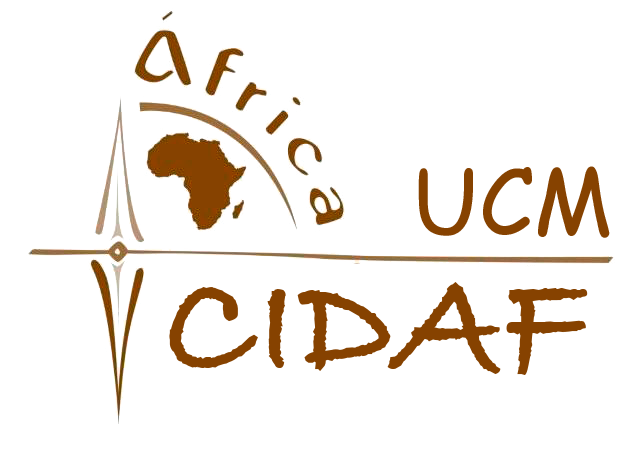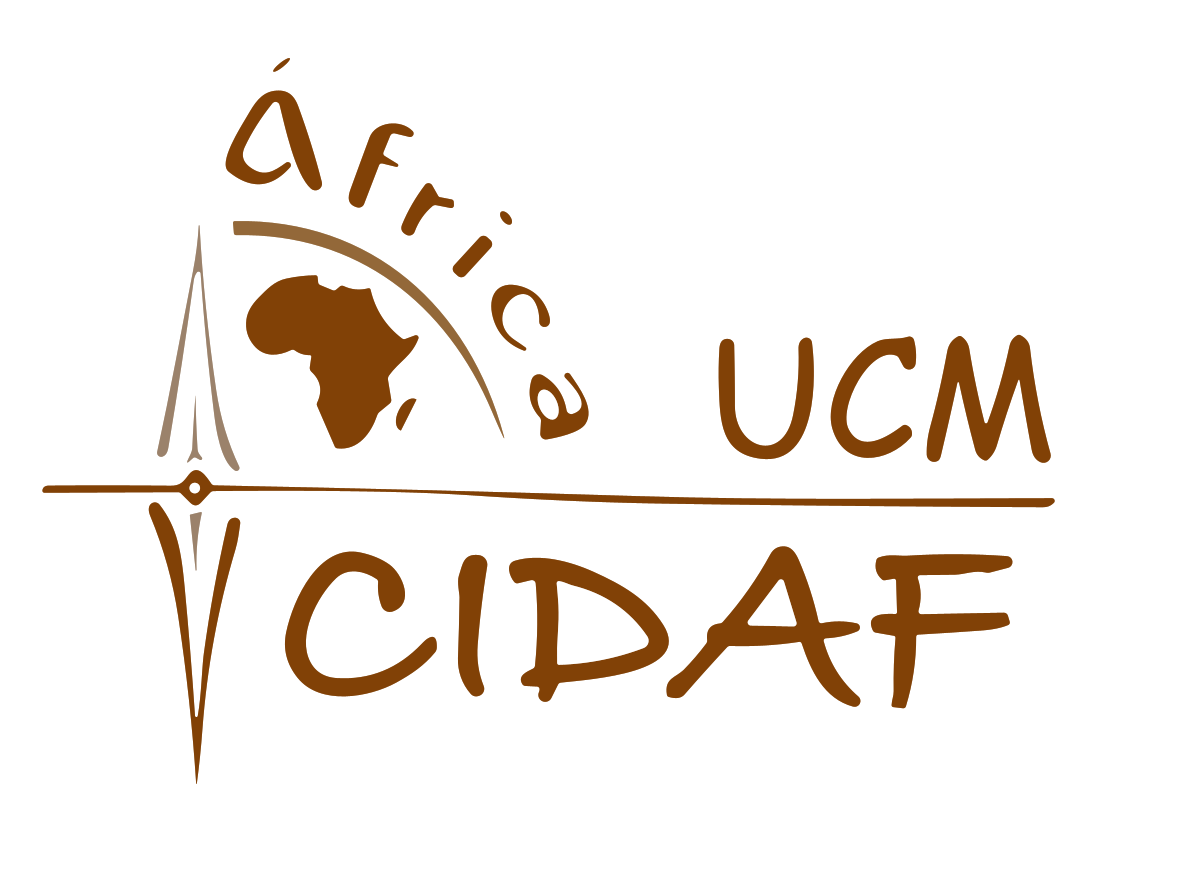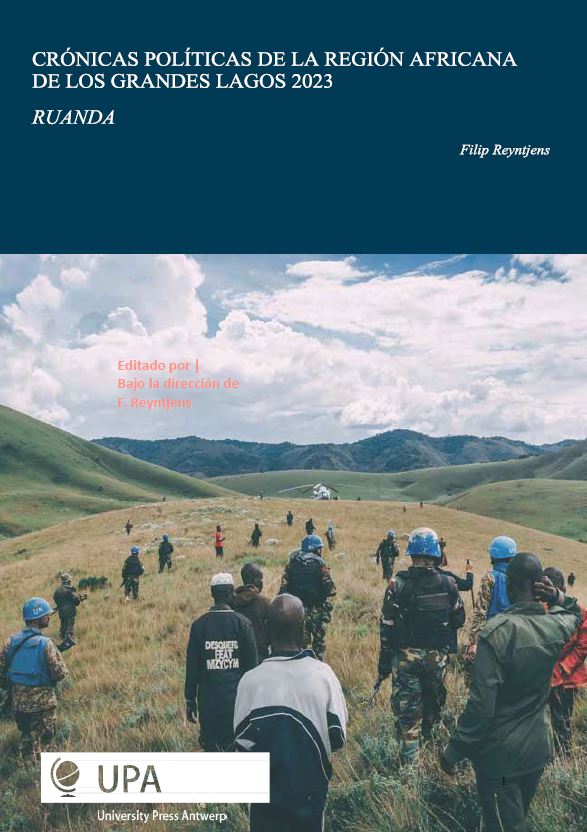El Nordiska Afrikainstitutet organiza la 4ª Conferencia Europea de Estudios Africanos .
PROGRAMA (en inglés)
ROUND TABLE DISCUSSIONS
Round Table 1: China?Africa Economic Relations Project: Research Findings and Policy, Implications
Organisers: African Economic Research Consortium (AERC), Kenya
Time: 16 June, 11.30 – 13.30 Venue: Lecture Hall 1
For the last 25 year, Asia has emerged as a major power within the global economy. This new status derives primarily from the rapid and phenomenal growth of the economies of China and India over the same period. The spectacularly rapid and sustained expansion of the giant economies of China and India has been associated with a robust and increasing intensification of the economic relationships of these countries with those of Sub?Saharan Africa. These twin developments are, in turn, associated with both opportunities and challenges for African countries. The AERC study concentrates on the China?Africa relations due to the relative importance of China compared to India in Africa. The project was implemented at two phase. The first was scoping studies and this was followed by country cases studies involving several countries. The discussion will revolve around the findings of these studies grouped into four parts: Synthesis of the AERC Scoping studies on China?Africa Economic Relations; China? Africa Economic Relations: The case of Trade; China?Africa Economic Relations: The case of AID; and China?Africa Economic Relations: The case of Investments. This Round Table will focus on a summary of the country and sector specific impacts of the relationships, the opportunities and challenges for the development prospects of the African countries, as well as an articulation of the appropriate overall and sector?specific policy measures that individual African countries may wish to take to advance their interests in the light of the impacts experienced and the opportunities and challenges faced.
Chair:
William Lyakurwa, Executive Director, AERC
Discussants:
Olu Ajakaiye, AERC, Kenya
Francis Mwega, University of Nairobi, Kenya
Kupukile Mlambo, African Development Bank, Tunisia
Mike Morris, University of Cape Town, South Africa
Round Table 2: PhD. Training Programs in sub-Saharan African Higher Education Institutions
Organisers: Organization for Social Sciences in Eastern and Southern Africa (OSSREA), Ethiopia
Time: 16 June, 17.00 – 19.00 Venue: Lecture Hall 1
As part of efforts to produce high calibre professionals, who could play pivotal roles in the socio-economic and political developments of their respective countries, some higher education institutions in sub-Saharan Africa (SSA) have been running Ph.D. training programs. Recently, however, many of the higher education institutions in the region are launching Ph.D. training programs in various disciplines either independently or in collaboration with universities operating in developed and developing countries. This move is highly supported by national governments as well
international, continental and regional organizations, especially the African Union Commission, the African Development Bank, East African Community, COMESA and SADC. Many of these universities are now producing Ph.D. graduates that are deployed in government and private research and academic institutions as well as other organizations. In most of the universities, however, there are formidable challenges that hinder the production of sufficient quality and quantity of Ph.D. graduates that are competitive at international levels. The results of most of the collaborative arrangements do not seem to be impressive and sustainable.
This Round Table will focus on mapping the trends, modalities, prospects and challenges of PhD. training in SSA and suggesting innovative ways of fast tracking Ph.D. programmes in the region. The following sub-themes provide the bases for the discussion:
• The status of PhD. training programs in Eastern and Southern Africa: modalities, challenges and prospects;
• Financing higher education in Africa; and
• Towards an innovative options in establishing Research Schools in Africa.
Chair:
Paschal Mihyo, Executive Director, OSSREA, Ethiopia
Discussants:
Paulos Chanie – Director of Research, OSSREA, Ethiopia
Abiye Daniel – Director of Publications and Dissemination, OSSREA, Ethiopia
Ton Dietz – Director, African Studies Centre, The Netherlands
Stefanie Baumert – Researcher, Research Academy Leipzig, Germany
Måns Fellesson – Researcher, The Nordic Africa Institute, Sweden
Round Table 3: Africa’s Growth Prospects and the Control of its Natural Resources
Organiser: Council for the Development of Social Science Research in Africa (CODESRIA)/ The African Capacity Building Foundation (ACBF)
Time: 17 June, 09.00 – 11.00 Venue: Lecture Hall 1
There is a general acknowledgment that the African continent has a high growth prospects in the coming years. But this prospect means greater struggle to secure the necessary resources to support this growth. There is need for Africa to manage its natural resources better. There is evidence that new discoveries and rising demand from Asian economies are encouraging African governments to adopt a more robust line on taxation and revenue sharing with international oil and mining companies. Governments across the continent are demanding higher shares of revenue and more fiscal accountability. Another concern is the potential for conflict over natural resources and the associated link with state fragility and governance. The control of the proceeds of natural resources is often contested in many parts of Africa (e.g. the Niger Delta problem) and often leads to corruption (Collier, 2001). Africa needs a common approach to the sensitive issue of corruption and governance of natural resources – e.g. by adhering transnational-governance processes such as the Kimberley process (Shaw et al., 2011). Non-state actors should equally be encouraged to participate.
Issues for the next few years:
• The likely activity in the resources industry will be the key driver of significant new oil discoveries in countries such as Ghana, Uganda and Sierra Leone. Therefore, these are likely to be more country specific.
• There is also the link between natural resource management and food scarcity/security. Africa with the relatively vast arable land has to be in a great position to respond to this.
• There is need to consider various financing models including private-public partnerships.
• As the middle class continues to grow in these countries as a result of natural resource wealth, there will also be greater demand for private education.
Chair:
Thandika Mkandawire, London School of Economics, UK
Discussants:
George Kararach, KM Expert, ACBF, Zimbabwe
Cristina D’Alessandro, Sciences Po, France
Jimi Adesina, University of Western Cape, South Africa
Demba Moussa Dembele, African Forum for Alternatives, Senegal
Ernest Etti, Snr Program Officer, ACBF, Zimbabwe
Round Table 4: ‘Decolonizing African Studies: An Agenda for Future Collaboration’
Organiser: AEGIS
Time: 17 June, 11.30 – 13.30 Venue: Lecture Hall 1
There is good reason to believe that African Studies is in the process of undergoing a significant geographical shift. Within Africa, CODESRIA and OSSREA have established themselves as leading centres of continental and regional research respectively, while a number of Universities on the continent are re-building their research platforms and looking for new partnerships. In Europe, African Studies has undergone a period of unprecedented growth, and while the boom in North America is probably at an end the field is arguably as vibrant as ever. But it is the sudden takeoff of African Studies in China, India and Brazil – to mention only the most obvious examples – that has the potential to re-invigorate the field of study. The question that inevitably arises is whether the emergence of new foci of research activity is likely to lead, firstly, to different kinds of research collaboration, and secondly, to the posing of a different order of questions. ‘Decolonising African Studies’ is a deliberately provocative title for the roundtable that invites participants to reflect on where they think the field is heading and how they think it ought to be re-positioned.
Chair:
Paul Nugent – AEGIS President
Discussants:
Anshan Li – Deputy Director, Center for African Studies, Peking University, China
Judith Byfield – Vice President, African Studies Association, USA
Aparajita Biswas – Vice President, African Studies Association, India
Ebrima Sall – Executive Secretary, CODESRIA, Senegal
Paschal Mihyo – Executive Director, OSSREA, Ethiopia
Ton Dietz – AEGIS Board and Director, African Studies Centre, The Netherlands
Round Table 5: The European Union in Africa: One Actor, Many Actors or No Actor?
Organiser: School of Global Studies, University of Gothenburg, Sweden
Time: 17 June, 14.30 – 16.30 Venue: Lecture Hall 1
This round table addresses to what extent and under what circumstances the EU should be seen as a unified actor in its relations with Africa. Whereas the EU often speaks with one voice in trade policy, EU policies toward the outside world tend to be more ambiguous and pluralistic in other policy areas, such as development cooperation and security policy. Many policymakers, especially from the European Commission, emphasize that the making of the EU as an unified global actor calls for a strengthening of the EU’s central institutions, instruments, and policies, where the Commission or the Council must, so the argument goes, play a leading role (Bretherton and Vogler 2006). Such attempts at centralization and communitarization are contested, however, and there is a real need to analyze the tensions and paradoxes between the central EU institutions and those of the individual EU member states. Sometimes the EU’s external policies are supranational and common, whereas in other areas cases they are either “shared” between EU institutions and EU member states or based on national and intergovernmental policies. In other cases still, there appears to be little in the way of articulated EU policy, and the member states pursue their own national policies outside of the EU framework. Thus, there are complex interrelationships between the EU’s external relations and those of the member states, and this panel explores the fact that this “coordination game” varies across and between different policy areas — hence the focus on trade, aid and security policies.
Chair:
Fredrik Söderbaum, School of Global Studies, University of Gothenburg, Sweden
Discussants:
Sten Rylander, Ambassador emeritus. Ministry of Foreign Affairs, Sweden
Lennart Wohlgemuth, African Studies, School of Global Studies, University of Gothenburg
Nicola Harrington, Deputy Director at United Nations, United Nations Development
Programme (UNDP), Brussels
Laura Davis, University of Ghent, Belgium
Round Table 6: Values, and the Challenges Facing Africa
Organiser: Council for the Development of Social Science Research in Africa (CODESRIA)/ The African Capacity Building Foundation (ACBF)
Time: 17 June, 17.00 – 19.00 Venue: Lecture Hall 1
This round table will adopt a multidisciplinary approach to assess how global changes affect and transform values. It will also reintroduce the ethical, axiological dimension in the reflection on development, to find out the effectiveness (or otherwise) of alternatives in providing solutions to some of the challenges imposed on Africa by the 21st century. Values are one of the pillars of human societies. By fixing targets and ideals, “they contain a morality that provides individuals with the means to judge their actions and build a personal ethics”. To this body of values is generally associated the task of maintaining social cohesion and enabling social progress. Today, with the ‘end’ of ideologies, the crisis of values and meaning, and the loss of bearings, the world looks like a drunken ship. The uncertainty that characterises our world are more acutely felt on the African continent where, everyday, the human being feels his/her own precariousness brought about by a range of economic, political and social factors. The state itself is no longer a guarantor or upholder of certain values; instead, it has become the central location that embodies the disconnection between the ethical and the political. What values can we mobilise to rebuild the social link and to give sense to our action? How can Africa negotiate its participation in the global village and modernity while being faithful to itself?
Chair:
Ebrima Sall, CODESRIA, Senegal
Discussants:
Aminata Diaw, Cheikh Anta Diop University and CODESRIA, Senegal
Hans Muller, University of Stellenbosch, South Africa/Coordinator and CODESRIA, Senegal
Elisio Macamo, Mozambique/University of Basel, Switzerland
Roger Tsafack Nanfosso, Université de Yaoundé II, Cameroun
Round Table 7: Democracy, Elections, and Conflict in West Africa
Organiser: African Studies Centre in Leiden and the Council for the Development of Social Science Research in Africa (CODESRIA)
Time: 18 June, 09.00 – 11.00 Venue: Lecture Hall 1
This round table demonstrates and discusses the interconnections between democracy, elections and conflict in West Africa, and the various forces at play, based on insights from research carried out under a CODESRIA-African Studies Centre led Consortium for Development Partnerships (CDP) that involves 14 institutions of West Africa and Europe. Through the presentation of recent examples of elections and their aftermath (Nigeria, Ivory Coast), a reflection on the complexity of conflict as an autonomous social dynamic, the ‘effect’ of specific funding regimes on democracy, the role of election management bodies and monitors, and the role of the (social) media in democracy and in various conflicts.
CDP is an international research network linking different institutions and scholars devoted to conducting collaborative research in Africa; a unique intra-regional network of senior and junior scholars, NGOs, civil society and policy makers studying local and regional dynamics of conflict and peace-building, as well as issues of economic development and democratization in West Africa.
Chair:
Ebrima Sall, CODESRIA, Senegal and Mirjam de Bruijn, ASC Leiden, The Netherlands
Discussants:
Rodrigue Kone , Centre de Recherche et d’Action pour la Paix (CERAP), Ivory Coast
Oka Obono, University of Ibadan, Nigeria
Augustin Loada, Centre for Democratic Governance (CGD), Burkina Faso
Jibrin Ibrahim, Centre for Democracy and Development in West Africa (CDD West Africa), Nigeria
LUGAR: Uppsala (Suecia)
FECHA: 15 -18 Junio 2011
Más Información:



